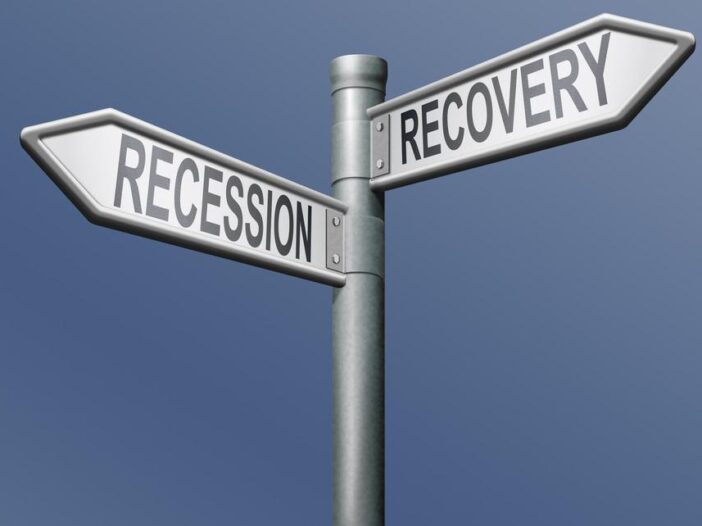Let’s start with the basics. There’s no evidence that lockdowns work to stop the spread of coronavirus. None. This is not guesswork.
After 10 months of the pandemic, we have data from more than 20 major countries around the world that have tried lockdowns in various forms. The lockdowns range from extreme (as happened in Victoria, Australia) to moderate (Sweden) to non-existent (South Dakota).
The results are striking. There was no material difference in caseloads or fatality rates regardless of what kind of lockdown was used. In some cases, an extreme lockdown reduced the spread for a short period of time. But, sooner than later, the virus returned. Lockdowns may briefly shift the caseload from one time period to another, but they do not change the total caseload over time.
Meanwhile, lockdowns kill. The lack of socialisation during a lockdown leads to drastically increased rates of suicide, drug abuse, alcohol abuse, domestic violence, and other deadly behaviours. Families are being separated (at best) or torn apart (at worst) due to the separation and stress of lockdowns.
Many people with other diseases such as cancer and heart disease avoid treatment for fear of contagion in hospitals and end up dying as a result. There’s nothing wrong with simple precautions such as hand washing, social distancing, and mask wearing — although there’s good evidence that masks don’t work either. But, those steps are low cost, and people easily adapt to them.
In conclusion, lockdowns are extreme, don’t work, and come at an enormous social cost. They’re mostly virtue signalling for clueless politicians and even more clueless reporters who egg them on.
But the economic damage they cause is vast and undeniable.
How to Survive Australia’s Biggest Recession in 90 Years. Download your free report and learn more.
There has been improvement
Annualised growth in the second quarter of 2020 was negative 31.4%, the biggest quarterly drop in US history.
And, the National Bureau of Economic Research — the designated scorekeeper for when recessions begin and end — declared that a recession began in February.
No one doubts that call for an instant. Since then, some things have much improved, it’s true. The technical recession was over by 30 June. The stock market roared back to new all-time highs by September for the S&P 500 and the NASDAQ Composite. The Dow hit a new all-time high last week.
Unemployment fell to 6.9% in early November; still high, but a big improvement over the 14.7% unemployment rate we saw in May. Annualised GDP also bounced back, up 33.1% in the third quarter. That was not enough to make up the first-half decline, but it was a good start.
So, with unemployment down, the economy up, and stocks at new all-time highs, does this mean the coast is clear and the pandemic panic is over?
Unfortunately, not.
The Great Business Lockdown Part II
We’ve seen a new spike in coronavirus caseloads and fatalities. The possibility of several vaccines being available in the near future is good news, but it will take weeks or months before most Americans get their injections (the vaccine will initially be limited to the most vulnerable citizens, which is good public health policy).
Politicians are doing the only thing they know how to do, which is to lockdown the economy.
So, are you ready for the Great Business Lockdown Part II?
You may be ready, but small businesses definitely are not.
Businesses were already struggling after the March–July lockdown and the violent protests that affected many cities this past US summer. Now, many will take another hit.
The one thing you can be sure of is that lockdowns destroy small- and medium-sized businesses, which constitute 45% of GDP and 50% of all jobs.
Joe Biden’s health advisors are the loudest voices in favour of the lockdowns. They may not stop the virus, but they will kill the economy.
More specifically, it looks like we’re headed into a ‘double-dip’ recession. That’s when a recession is followed by a short recovery and then falls back into a second recession.
That’s what happened in the early 1980s when one recession ended in July 1980, and a new recession began in July 1981, just a year after the prior recession.
There’s another factor that will deepen the new recession: the mass exodus from cities that’s been underway for months.
Nearly one million have fled NYC
Cities are the greatest concentration of talent and generators of wealth in the history of civilisation.
In cities, you’ll find writers, bankers, artists, journalists, teachers, students, and everyday people who have amazing talents of their own and aspire to be creators or entrepreneurs even as they work routine day jobs.
Talent wants to be near talent, and creativity acts like a magnetic force that attracts even more talent to come to the city and take their chances.
From that talent and creativity (with a healthy dose of money and competition) comes enormous wealth creation that is a major driver of the growth of the US economy as a whole and economies overseas.
But, what happens when you throw that entire wealth-creating engine in reverse?
What happens when lockdowns, riots, arson, looting, and increasing violence — along with vanishing tax revenues and disrespected police — turn our cities into wastelands (at best) and killing fields (at worse)?
What happens when city schools are shutdown, and children can’t receive a proper education?
The answer is that people leave. They move out and head to suburbs, exurbs, or even the country.
People leave violence-prone cities like New York, Chicago, and Baltimore, and head for tax-free states like Texas, Florida, and Tennessee. This is not just speculation; the evidence is in.
More than 300,000 New Yorkers have filed formal change of address notices with the US Postal Service from 1 March to 31 October.
Considering that each address change notice represents a household, and assuming an average of three persons per household, this means the total number of people moving out is closer to one million.
And, since the address change notices are only made available when 11 or more pieces of mail are affected, this means the number of actual moves is higher.
‘When cities suffer, the economy suffers’
Of course, the people who move are those most able to move, which means they have more money and talent than the average citizen. Those left behind are poorer, less educated, and have fewer career options on average.
Those poorer citizens are then left to make their way through streets filled with the homeless, the criminally insane, violent criminals, and junkies. Police have been defunded or are just taking early retirement and walking off the job.
When you depopulate cities, you destroy the greatest economic engines in the country. When cities suffer, the economy suffers. But the problem is not confined to the cities. This exodus will hurt growth in the country as a whole through supply chains. It’s one more reason why a second recession is coming fast.
The new recession starts now.
Stocks are just beginning to get the message. Expect stocks to fall sharply from here. Investors should reduce exposure to stocks while increasing their cash allocations and acquiring gold.
All the best,
 |
Jim Rickards,
Strategist, The Daily Reckoning Australia
[conversion type=”in_post”]
***
Before we wrap up, you need to read this urgent note from publisher James Woodburn. It’s regarding what could well be the most important investment topic of 2021…one the mainstream is covering in typically sloppy fashion…
Been quite the year for all clean energy stocks, right?
Reader interest in the topic has been immense. I’ve not seen anything like it since…well, never actually.
And for good reason.
Green energy stocks have occupied the top performance spots in almost every stock index in the world this year.
And that was before Joe Biden (the green challenger) beat Donald Trump (the orange incumbent).
Now it’s looking likely Biden will preside over a multitrillion-dollar relief package, very similar to the one following the 2008 economic crisis.
And that this package will likely lead to enormous new capital inflows into the renewable sector — solar in particular.
How big is this going to get exactly?
How will it impact Australia?
And which Australian stocks, in particular, are in line to benefit?
Hundreds of readers have emailed us about this topic in recent months. You know an opportunity forming when you see one. And you realise this is about more than just the US rejoining the Paris climate accords.
Investment megatrends like the one that is forming around clean energy right now come along once in a blue moon.
So, we’re duty-bound as a financial publisher to try and get you ahead of the pack on it.
As such, I’ve pulled a few strings and rearranged a few things to give you a fresh take on what we think the opportunities are in this space in 2021. And how Australian investors in particular can take advantage of them.
We’ll be covering this all next week.
I think if you’re looking to make some smart new investments for the year ahead, you should find what we’ve uncovered really useful.
Keep an eye out next week.
Regards,
 |
James Woodburn,
Group Publisher
PS: Australia’s Great COVID Recession — Learn which investments to accumulate and which ones to avoid in order to give you the best chance of preserving your wealth during the recession. Click here to learn more.

